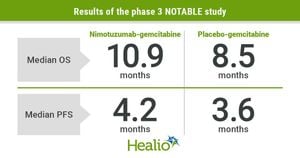Text message scams claiming unpaid tolls have become increasingly common, targeting drivers across the United States, including Harris County, Texas. Officials are warning residents to be vigilant against these fraudulent messages, which threaten fines and even legal action if payments aren’t made immediately.
The scam typically begins with a text stating the driver owes unpaid toll fees. The message may specify a certain dollar amount and insist on urgent payment to avoid additional penalties. Links to dubious websites are included, which are likely to be phishing sites aimed at stealing personal information and financial data. "The scammy text might show a dollar amount for how much you supposedly owe and include a link... but it's a phishing scam," warned the Federal Trade Commission (FTC).
This alarming trend has caught the attention of government officials and law enforcement agencies. For example, the California Department of Justice has been proactive by issuing warnings to residents. California Attorney General Rob Bonta stated, "I urge Californians to take practical steps to guard against being victimized by scammers, including visiting official websites only and talking to friends and family who may be unaware of these dangers."
Recipients of these messages have taken to social media, voicing their frustrations and alerting others about the scam. Users shared experiences, emphasizing the relentless nature of the scam. "Well, here we go again. This scam keeps returning for a reason. It works. People are falling for it," commented one user, highlighting how these deceptive messages continue to ensnare unsuspecting victims.
The Harris County Toll Road Authority has also weighed in, reporting they have received nearly 2,000 calls related to the scam. Tracy Jackson, a spokesperson for the Authority, noted, "Some had received the text messages, but others just wanted more information." The Authority has been actively posting alerts about the scam on social media since last year to raise public awareness.
The toll payment systems involved differ by region, with Texas residents using services like TxTag and EZ Tag, compared to California's FasTrak. Despite the variations, the strategies of scammers remain alarmingly consistent as they exploit these systems to impersonate legitimate agencies. The Harris County Attorney's Office affirmed, "The Authority does not send text messages concerning billing. Anyone skeptical about text messages should contact the Authority’s customer service desk."
Law enforcement agencies recommend several precautionary measures to help the public steer clear of these scams. They advise recipients to not click on any links and to delete suspicious messages immediately. If someone suspects they’ve fallen victim to the scam, they should secure their personal and financial information and report the incident to the appropriate authorities. Residents are urged to report any text scams to agencies such as the FTC, FBI, and local law enforcement.
Residents are encouraged to verify their accounts and balances only through official toll road websites or by contacting customer service directly. This simple step can help prevent the potential financial losses and identity theft associated with these scams. The Texas Department of Transportation has reiterated its stance, reminding drivers they do not communicate via email or text about balances due, reinforcing the importance of awareness around public communications.
Drive safe and stay scam-aware; the more informed you are, the less likely you’ll fall victim to these criminals. It’s imperative to keep monitoring financial accounts for unusual transactions and take action against any unauthorized access. The continued actions of these scammers serve as reminders of the need for heightened vigilance, especially in the digital age.



